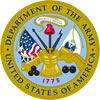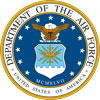The University of Tennessee Health Science Center
Overview
At a Glance
School type
Public, 4-year or above
School Size & Setting
Large | Urban
Students-to-Faculty Ratio
1:1
Religious affliation
Not applicable
General Information
Address
The University of Tennessee Health Science Center
875 Monroe Avenue, Memphis, Tennessee 38163
See on MapPhone
(901) 448-5500
Website
www.uthsc.edu/No Information for this section
cost & financial aid
Annual tuition & fees
Undergraduate
In state
$11,153Out of state
$22,040Graduate
In state
$14,634Out of state
$24,455Other Estimated Costs
Housing
Not Available
Books & Supplies
Not Available
Personal Expenses
Not Available
Pay For College with ROTC
Reserve Officers Training Corp (ROTC) is a college scholarship program that prepares students to become military officers
Learn More About ROTCFinancial aid resources
Paying for college
Learn about different ways to cover costs, incluing financial aid, GI Bills, grants and scholarships
Applying for financial AidReview this step-by-step guide on everything you need to do to complete your application.
No Information for this section
Academics
Most Popular Undergraduate majors
- Registered Nursing/Registered Nurse
- Audiology/Audiologist and Speech-Language Pathology/Pathologist
- Dental Hygiene/Hygienist
- Clinical Laboratory Science/Medical Technology/Technologist
Undergraduate Majors X
-
HEALTH PROFESSIONS AND RELATED PROGRAMS
-
Audiology/Audiologist and Speech-Language Pathology/Pathologist
- An integrated program that prepares individuals to work as both audiologists and speech-language pathologists. Includes instruction in a variety of communication disorder studies, audiology, speech pathology, language acquisition, and the design and implementation of comprehensive therapeutic and rehabilitative solutions to communications problems. See other colleges that offer this major
-
Dental Hygiene/Hygienist
- A program that prepares individuals to clean teeth and apply preventive materials, provide oral health education and treatment counseling to patients, identify oral pathologies and injuries, and manage dental hygiene practices. Includes instruction in dental anatomy, microbiology, and pathology; dental hygiene theory and techniques; cleaning equipment operation and maintenance; dental materials; radiology; patient education and counseling; office management; supervised clinical training; and professional standards. See other colleges that offer this major
-
Clinical Laboratory Science/Medical Technology/Technologist
- A program that prepares individuals to conduct and supervise complex medical tests, clinical trials, and research experiments; manage clinical laboratories; and consult with physicians and clinical researchers on diagnoses, disease causation and spread, and research outcomes. Includes instruction in the theory and practice of hematology, clinical chemistry, microbiology, immunology, immunohematology, physiological relationships to test results, laboratory procedures and quality assurance controls, test and research design and implementation, analytic techniques, laboratory management, data development and reporting, medical informatics, and professional standards and regulations. See other colleges that offer this major
-
Registered Nursing/Registered Nurse
- A program that generally prepares individuals in the knowledge, techniques and procedures for promoting health, providing care for sick, disabled, infirmed, or other individuals or groups. Includes instruction in the administration of medication and treatments, assisting a physician during treatments and examinations, Referring patients to physicians and other health care specialists, and planning education for health maintenance. See other colleges that offer this major
-
Most Popular Graduate programs
- Speech-Language Pathology/Pathologist
- Occupational Therapy/Therapist
- Physician Associate/Assistant
- Health Information/Medical Records Administration/Administrator
- Pharmacology
Graduate ProgramsX
-
BIOLOGICAL AND BIOMEDICAL SCIENCES
-
Biomedical Sciences, General
- A general, program that focuses on the integrative scientific study of biological issues related to health and medicine, or a program in one or more of the biomedical sciences that is undifferentiated as to title. Includes instruction in any of the basic medical sciences at the research level; biological science research in biomedical faculties; and general studies encompassing a variety of the biomedical disciplines. See other colleges that offer this major
-
Pharmacology
- A program that focuses on the scientific study of drug interactions on biological systems and organisms and the sources, chemical properties, biological effects, and therapeutic uses of drugs. Includes instruction in pharmacodynamics, pharmacokinetics, toxicology, drug therapeutics, drug action, bodily responses to drug events, biochemical proliferation and differentiation, apoptosis, cell biology, medicinal chemistry, and studies of specific drugs and drug interactions. See other colleges that offer this major
-
Biostatistics
- A program that focuses on the application of descriptive and inferential statistics to biomedical research and clinical, public health, and industrial issues related to human populations. Includes instruction in mathematical statistics, modeling, clinical trials methodology, disease and survival analysis, longitudinal analysis, missing data analysis, spatial analysis, computer tomography, biostatistics consulting, and applications to such topics as genetics, oncology, pharmacokinetics, physiology, neurobiology, and biophysics. See other colleges that offer this major
-
Epidemiology
- A program that focuses on the scientific study of disease, disability, and trauma patterns within and across populations and the development of health management mechanisms to prevent and control disease outbreaks and injurious behaviors. Includes instruction in biostatistics, biochemistry, molecular biology, immunology, disease and injury determinants, genetic disease and disability factors, behavioral studies, health services research, environmental disease and injury factors, and population studies. See other colleges that offer this major
-
-
ENGINEERING
-
Bioengineering and Biomedical Engineering
- A program that prepares individuals to apply mathematical and scientific principles to the design, development and operational evaluation of biomedical and health systems and products such as integrated biomedical systems, instrumentation, medical information systems, artificial organs and prostheses, and health management and care delivery systems. See other colleges that offer this major
-
-
HEALTH PROFESSIONS AND RELATED PROGRAMS
-
Audiology/Audiologist
- A program that prepares individuals to diagnose and treat hearing loss and other disorders involving the ear, advise patients on means to use their remaining hearing, and select and fit hearing aids and other devices. Includes instruction in acoustics, anatomy and physiology of hearing, hearing measurement, auditory pathology, middle and inner ear analysis, rehabilitation therapies and assistive technologies, and pediatric and other special applications. See other colleges that offer this major
-
Speech-Language Pathology/Pathologist
- A program that prepares individuals to evaluate the speaking, language interpretation, and related physiological and cognitive capabilities of children and/or adults and develop treatment and rehabilitative solutions in consultation with clinicians and educators. Includes instruction in the anatomy and physiology of speech and hearing, biomechanics of swallowing and vocal articulation, communications disorders, psychology of auditory function and cognitive communication, language assessment and diagnostic techniques, and rehabilitative and management therapies. See other colleges that offer this major
-
Dental Clinical Sciences, General
- An integrated or undifferentiated program that generally prepares dentists in one or more of the oral sciences and advanced/graduate dentistry specialties. See other colleges that offer this major
-
Health Information/Medical Records Administration/Administrator
- A program that prepares individuals to plan, design, and manage systems, processes, and facilities used to collect, store, secure, retrieve, analyze, and transmit medical records and other health information used by clinical professionals and health care organizations. Includes instruction in the principles and basic content of the biomedical and clinical sciences, information technology and applications, data and database management, clinical research methodologies, health information resources and systems, office management, legal requirements, and professional standards. See other colleges that offer this major
-
Physician Associate/Assistant
- A program that prepares individuals to practice medicine, including diagnoses and treatment therapies, under the supervision of a physician. Includes instruction in the basic medical and clinical sciences and specialized preparation in fields such as family medicine, pediatrics, obstetrics, gynecology, general surgery, psychiatry, and behavioral medicine; the delivery of health care services to homebound patients, rural populations, and underserved populations; and community health services. See other colleges that offer this major
-
Cytotechnology/Cytotechnologist
- A program that prepares individuals to work with pathologists to detect changes in body cells that may indicate, and permit diagnosis of, the early development of cancers and other diseases. Includes instruction in biochemistry, microbiology, applied mathematics, microscopy, slide preparation, identification of cellular structures and abnormalities, and laboratory procedures and safety. See other colleges that offer this major
-
Clinical Laboratory Science/Medical Technology/Technologist
- A program that prepares individuals to conduct and supervise complex medical tests, clinical trials, and research experiments; manage clinical laboratories; and consult with physicians and clinical researchers on diagnoses, disease causation and spread, and research outcomes. Includes instruction in the theory and practice of hematology, clinical chemistry, microbiology, immunology, immunohematology, physiological relationships to test results, laboratory procedures and quality assurance controls, test and research design and implementation, analytic techniques, laboratory management, data development and reporting, medical informatics, and professional standards and regulations. See other colleges that offer this major
-
Occupational Therapy/Therapist
- A program that prepares individuals to assist patients limited by physical, cognitive, psychosocial, mental, developmental, and learning disabilities, as well as adverse environmental conditions, to maximize their independence and maintain optimum health through a planned mix of acquired skills, performance motivation, environmental adaptations, assistive technologies, and physical agents. Includes instruction in the basic medical sciences, psychology, sociology, patient assessment and evaluation, standardized and non-standardized tests and measurements, assistive and rehabilitative technologies, ergonomics, environmental health, special education, vocational counseling, health education and promotion, and professional standards and ethics. See other colleges that offer this major
-
No Information for this section
Admissions
Application Fee
Undergraduate
$75Graduate
$75No Information for this section
Student Life
Student Demographics
Female Students
66%Male Students
34%Student Ethnicities
- Caucasian62.38%
- Black12.97%
- Asian10.13%
- Two Or More Ethnicities5.37%
- Not Specified5.32%
- Hispanic/Latino3.6%
- Native Hawaiian/Pacific Islander0.13%
- American Indian/Alaska Native0.1%
Student body breakdown
Total students enrolled
3,392
Undergraduate students
300
Graduate students
3,092
Full Time Students
94%Part Time Students
6%Student services
- Meal plan
- Counseling services
- Remedial services
- Work-study
- Placement services
- Study abroad
- Weekend/evening classes
- On-campus day care for student's children
No Information for this section
 Army ROTC
Army ROTC Navy ROTC
Navy ROTC Air Force ROTC
Air Force ROTC